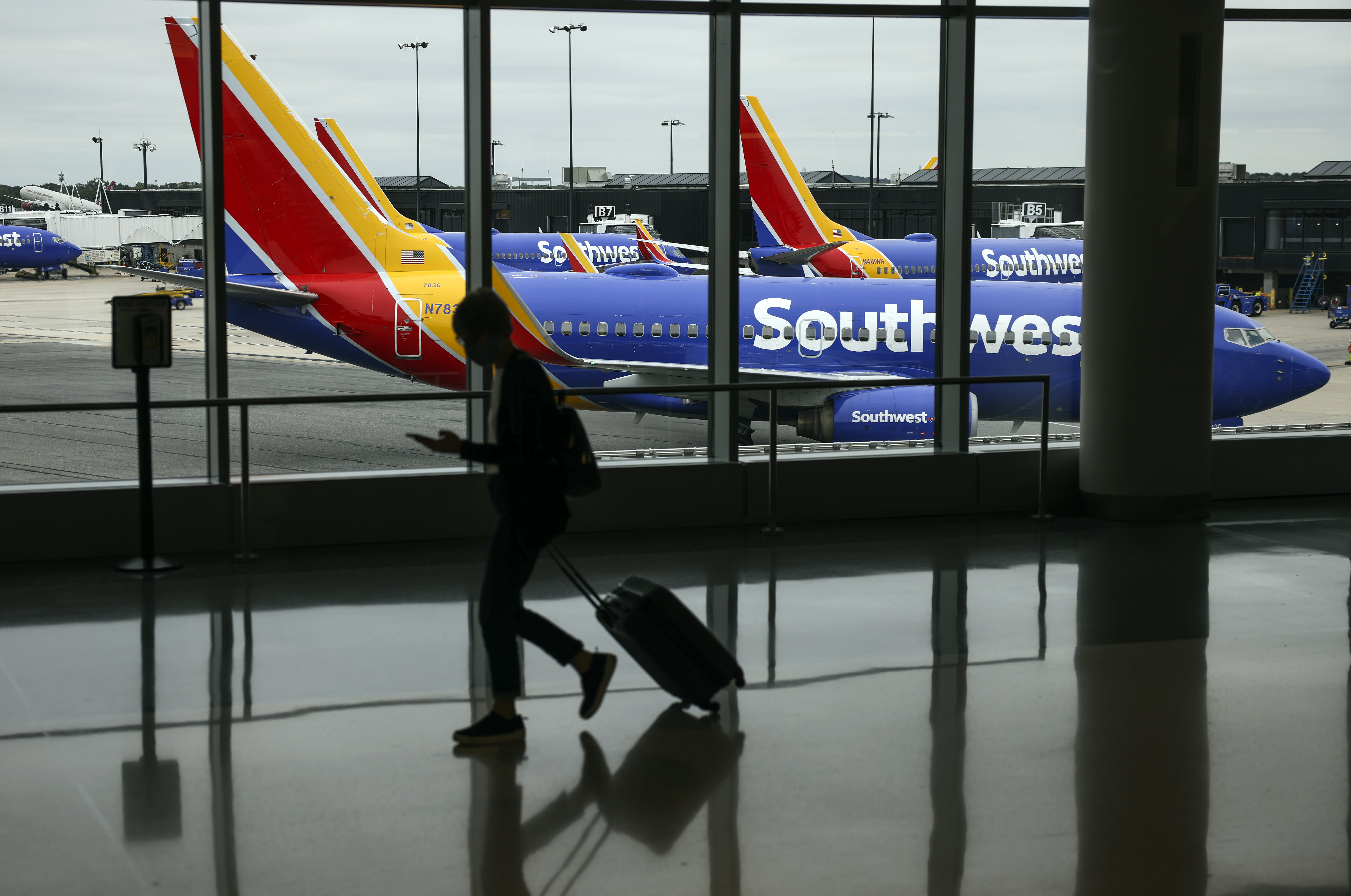Southwest Airlines apologizes for flight cancellations, says operations are stabilizing

Southwest Airlines apologized for canceling more than 2,000 flights since Saturday, saying the airline’s operations are starting to stabilize after disrupting travel for tens of thousands of customers.
“I know it’s been a really rough weekend and obviously I really feel for our customers and our people that are trying their best to serve our customers, but when an airline gets behind, it’s hard to catch up,” Southwest Airlines CEO Gary Kelly told CNBC’s “Squawk on the Street” in an interview Tuesday. Kelly said he wasn’t trying to make any excuses for the disruptions.
Southwest canceled 87 flights, or 2% of its schedule on Tuesday, according to flight-tracking site FlightAware.
The Dallas-based airline since Saturday has canceled close to 2,400 flights, FlightAware data showed. The airline said bad weather and air traffic control issues in Florida kicked off the problems, which snowballed due to its own staffing shortfall, particularly a lack of backup pilots and flight attendants to step in when things go wrong. Other airlines had relatively minor cancellations.
Kelly said that each of the airports it serves in Florida was affected by air traffic control delays, “including a seven-hour ground stop at Orlando.” Other airlines had relatively small numbers of cancellations compared with Southwest.
Orlando flights were delayed an average of 45 minutes on Friday, according to a person familiar with the matter.
The disruptions peaked at more than 1,100 cancellations on Sunday, about 30% of Southwest’s flights that day just as the carrier scheduled the most flights in a day since April 2020, according to aviation consulting firm Cirium.
Southwest shares were up 1.3% in early afternoon trading after losing more than 4% Monday.
“Southwest Airlines extends a tremendous apology to our Customers and Employees for the flight cancellations and delays which occurred over the weekend and on Monday,” the airline said in a statement on its website Tuesday.
Casey Murray, president of the Southwest Airlines Pilots Association, which represents the carrier’s more than 9,000 pilots, told CNBC that the airline’s poor planning was to blame for the issues. The airline has already scaled back its fall schedule due to disruptions throughout the summer following complaints from exhausted crew.
Southwest last week said it would enforce the Biden administration’s policy that employees of federal contractors, which includes major airlines like Southwest, American and others, must be vaccinated against Covid-19, though he told CNBC he doesn’t think companies should mandate vaccines.
The disruptions sparked speculation on social media that employees were calling out sick in protest. The airline has called that unfounded and Kelly told CNBC on Tuesday that it wasn’t a cause or contributing factor in the disruptions.
A traveler walks past a Southwest Airlines airplane as it taxies from a gate at Baltimore Washington International Thurgood Marshall Airport on October 11, 2021 in Baltimore, Maryland.
Kevin Dietsch | Getty Images
Mike Van de Ven, Southwest’s chief operating officer who was promoted to president last month, told staff Sunday that it could cut its schedule further and that it is trying to build a “staffing cushion.”
Over the weekend, 2,176 Southwest flights were canceled because of unavailable crews, the pilots’ union told members late Tuesday.
Murray told CNBC that pilots picked up most of the open trips caused by the disruption.
The union said October is on track to be the second-worst month for pilot fatigue calls since August, which was a record 633. The airline trimmed its schedule shortly after that.
It also said that sick calls are higher compared with previous Octobers.
“But those past Octobers weren’t affected by the chronic manning problems and cumulative fatigue that have occurred since June,” the union wrote. “When you look at 2021 data, the sick rate is slowly creeping up as our crews continue to get worn down by the operation. The fatigue data corroborates that statistic.”
Article Courtesy of CNBC
